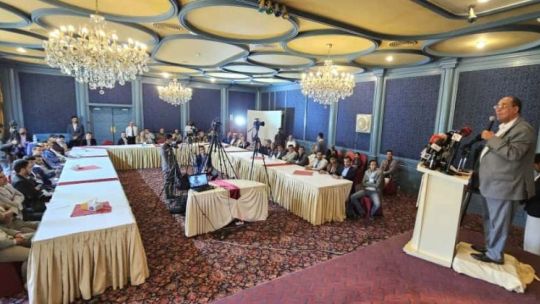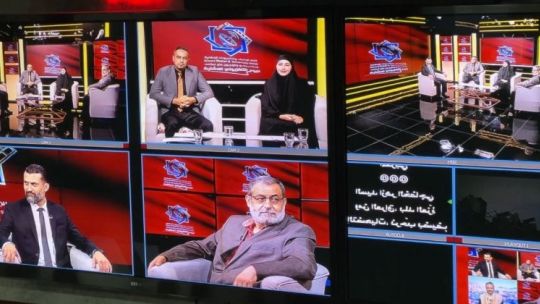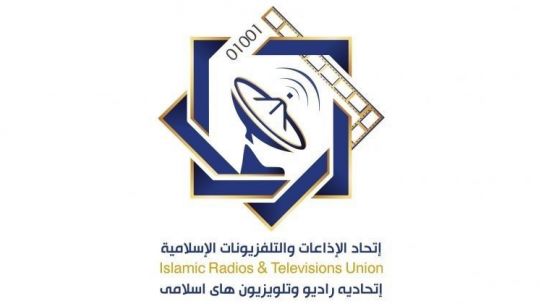Preamble
In keeping with our desire to have closer professional ties, to consolidate cooperative relations and to improve our performance both in form and content; and conscious of our mission to propagate the religion of Islam according to the teachings of Prophet Muhammad (peace be upon him), to promote Islamic brotherhood and to help in raising an informed generation with lofty aspirations, aware of the mission of the radios and televisions to educate the nations of the Islamic world on true Islamic beliefs, on facts about their countries and their just cause, the member radio and television networks and institutes of the Union agreed on the need to have a framework for their cooperative relations.
During the first meeting of the Union that was held on 29 Khordad 1386 (solar Hegira), corresponding to 4 of Jammadi al-Thani 1428 and 19 June 2007, in Tehran the participants endorsed the establishment of “The Islamic Radios and Televisions Union” with independent legal status for an indefinite period with its headquarters in Tehran, capital of the Islamic Republic of Iran, and if needed, branches and centers in other countries.
The members of the Union endorsed the Ethical Charter and the Statute of the Union in 27 articles and 3 notes.
Terms and Definitions
Article 1
The following terms with the definitions presented below shall be used in this Statute:
- The Union means the Islamic Radios and Televisions Union.
- Organs of the Union are: The General Assembly, The High Council, The Secretariat, The Permanent Committees and centers affiliated to the Union.
- The General Assembly includes all permanent members of the Union.
- The High Council is the executive board selected and commissioned by the General Assembly.
- The Secretary General is elected by the General Assembly to manage the activities of the Union.
- Permanent Committees are the specialized committees of the Union that are appointed by the High Council.
- The Affiliated Centers are the professional centers affiliated to the Union,
- Members are the radio and television stations and media institutions of the members of the Union.
Article 2: Purposes of the Union
The purposes of the Union are:
- To promote cooperation among Islamic radios and televisions and media institutions on professional, technical and news matters, and matters relating to programming, human resources, exchange of products, experiences and training programmes in the spirit of brotherhood, solidarity and takafol.
- To develop cooperative relations and coordination among Islamic radios and televisions in cultural, religious and political domains on the basis of full commitment to the interests of Ummah, elucidating issues besetting the oppressed and the innocent, opposing all forms of discrimination, atheism, extremism, imperialism and cultural aggression.
- To use the media to defend the sanctities of the Ummah, and to educate the world about the righteousness of Islam and teachings of Prophet Muhammad (peace be upon him) by applying hikmah and correct ways of preaching.
- To protect the rights of Islamic communities and countries and to support their just causes in confrontation with the cultural occupation and aggression, to consolidate the unity, to forge stronger bonds of affinity and fraternity among branches of Islam, to contribute to the enrichment of Islamic identity and to focus on elements of cultural identity in light of their diversity and the need to promote them.
The Role of the Union
To play a role on bringing about a just global system of communications that guarantees the existential rights of all cultures and their advancement and to create opportunities for expression, dialogue and expression of views and opinions in full freedom; and to use the latest technologies and to indigenize their use in Islamic countries.
Areas of Cooperation
Article 3: Areas of cooperation are as follows:
- Exchange of media, production and technical experiences.
- Exchange of programs and pictures.
- Joint production and marketing.
- Media coordination on regional and world issues and events.
- Coordination of activities on space technologies.
- Human resources training and development.
- Exchange of news packages and cooperation in covering events.
- Conducting relevant research and surveys.
- Keeping up with the advancements in technology, programming and technical affairs.
- Providing legal support for the members.
Mechanisms
Article 4: The Union shall use all necessary ways to achieve its purposes, including:
- Activating the organs of the Union, establishing affiliated centers, committees and working groups.
- Using operating mechanisms relating to technological systems and modern communication equipment.
- Holding meetings, conferences, seminars, training classes and courses and festivals.
- Collecting information and documents, and conducting research and surveys and publishing publications.
- Participation in the relevant regional and international meetings, seminars and conferences.
Membership
Article 5: All Islamic radio and television networks and media institutions that produce or broadcast programs are eligible for membership under following conditions:
Produce of programs with Islamic background and character, and apply Islamic conduct and manners in their media activities and adhere to the Ethical Charter and regulation of the Union.
Article 6: The High Council shall approve the temporary membership of members and the General Assembly shall approve the permanent membership in the Union in its meeting. The High Council shall decide on ways of becoming a member on the basis of relevant conditions.
Article 7: The membership shall be terminated for the following reasons:
- A formal request submitted to the Secretariat by any member expressing the intention for withdrawal from the Union which will only become valid after submission to the General Assembly.
- The decision to cancel the membership of any member that has not fulfilled its commitments to the Union and its policies, especially its Statute, Internal Regulations, and the Ethical Charter, or has pursued policy contrary to the purposes of the Union shall be proposed by the High Council to the General Assembly. The decision is approved by two-third of the votes of members present in the General Assembly.
Rights and Obligations
Article 8:
- Participation in the meetings of the Union.
- Studying the items in the agenda and presenting proposals and comments on them.
- Participation in taking votes on the submitted proposals.
- Cooperation in the activities of the Union, benefitting from the services resulting from these activities, and participation and benefitting from news, program and joint production exchanges.
- Making good use from the committees, centers and affiliated institutions.
- Becoming a candidate or encouraging others to become candidates for membership or for accepting a responsibility in the organs of the Union.
Article 9: Obligations of the members of the Union
- Adherence to the provisions in the Statute, Internal Regulations, and approved rules and regulations, and refraining from any activity that contravenes the purposes and general interests of the Union, its organs and members.
- Participation in the activities of the Union and its organs.
- Adherence to the decisions of the Union and its organs.
- Payment of membership and annual subscription fees.
- Participation in drafting the annual programme and its implementation after the approval.
- Showing commitment in cooperation for the various activities of the Union.
Organs of the Union
Article 10: The organs of the Union are:
- The General Assembly
- The High Council
- The Secretariat
- The Permanent Committees
- The Affiliated centers and institutions.
The General Assembly
Article 11: The General Assembly is the highest organ of the Union and has all the required powers to achieve the purposes of the Union and is composed of permanent members of the Union. The General Assembly shall have one ordinary meeting in one year and hold extraordinary meetings according to the rules in the Internal Bylaw.
Article 12: The General Assembly determines the general purposes and policies of the Union, supervises over the performance of the High Council, the Secretary General, Permanent Committees, and centers and affiliated institutions. It also has the power to accept, suspend and cancel the membership of members, to decide on establishing a new organ, center and institution in the Union, to amend the Statute, ratify international treaties and decide on all matters not stipulated in the Statute. The General Assembly may delegate its power to the Secretary General and the High Council.
The High Council
Article 13: The High Council is an elected body which is responsible to the General Assembly. It prepares reports and supervises over the activities of the Secretariat, committees, and centers for the purpose of realizing the aims of the Union. The High Council consists of the following members:
- The Secretary General and his two deputies
- Six representatives from television networks, three representatives from radio networks and one representative from media institutions. They are elected by the relative majority of the votes of members present at the General Assembly from among those who have put behind one full term after membership in the Union.
In the beginning of each term, the High Council elects from its members one chairperson and one deputy chairperson.
Article 14: The term of High Council activity is four years. The meetings of the High Council are held with the presence of majority of members at least once every six months. Deputy Secretary-General, Rapporteur and his substitute and any person the Council determines to be necessary attend the meeting of the High Council without right to vote.
Secretariat and Secretary General of the Union
Article 15: The General Assembly elects from among its members the Secretary-General and two his vice for a renewable term of 4 years by relative majority of the members present. The election of the Secretary-General and his two vice is done from among real persons on the basis of their scientific qualification and professional expertise and knowledge towards media affairs and the Union.
Article 16: The Secretariat of the Union is a body consisting of the Secretary-General, his two vice, deputy and assistants, Rapporteur and the Substitute Rapporteur. The Secretary-General is in charge of the Secretariat.
Note: The deputy, assistants, Rapporteur and the Substitute Rapporteur are appointed by the Secretary-General.
Article 17: The Secretary-General represents the Union in external relations of the Union and before the courts. Signing of all documents and contracts that give rise to any liability for the Union and all international treaties that have been approved by the General Assembly, deciding on the agenda of the meetings of the General Assembly and the High Council and sending invitations for meetings are among the functions of the Secretary-General. The Secretary-General can delegate some of his responsibilities to one of his two vice or deputy, or Rapporteur or Substitute Rapporteur.
Committees:
Article 18: The General Assembly shall establish the following committees:
- The Religious Discourse Committee
- The News and Political Committee
- The Training Committee
- The production Committee
- The Technical Committee
- The Media Services Committee.
Note: The General Assembly may establish, if it deems necessary, other permanent committees to realize the activities of the Union.
Article 19: The chairpersons of the committees are chosen by the High Council from among its members upon the proposal of the Secretary-General. The High Council approves the internal regulations of the committees with a view to realizing activities of the permanent committees on the basis of the Statute and Bylaw of the Union.
Article 20: Each committee submits its plans, proposals and working program with a view to realizing the purposes and aims of the Union Statute and the High Council decides on their functions, powers and their modus operandi and the Secretary- General supervises on its activity.
Affiliated Centers:
Article 21: The Union shall establish the following centers:
- Studies and Technical Services Company
- Production and Marketing Company
- Centers for Regional and Global Media Training.
- International Visual News Agency
Note: The Secretary General may propose to the High Council for its approval other centers so that it could be referred to the General Assembly for final approval.
Article 22: the Secretary-General supervises over the activities of centers. Regulations and procedures that are approved by the High Council determine the mechanisms for adjustment of relations between organs of the Union, methods of management and appointment of their chief executive officers.
Meetings, agenda, administrative programs
Article 23: All matters relating to administration, ways of inviting to meetings, drafting of the agenda and administrative mechanisms and directives relating to the organs of the Union are decided by the internal regulations.
Financial Sources of the Union
The Union is a non- profit organization and its revenues are spent to realize the purposes of the Union and to carry out its activities and functions. The financial sources of the Union are:
- From membership and annual subscription fees paid by the members.
- Revenues from advertisements, publications and sale of programs.
- Revenues from operating the facilities available to the Union in accordance with regulations.
- Donation, voluntary payments and gifts to the Union.
- Miscellaneous revenues.
Administrative and financial regulations
Article 25: Secretary General has all the financial responsibility in receiving and spending the revenues during a fiscal year that begins from the beginning of Christian calendar year (January). Preparing the general budget and presenting it to the General Assembly for its approval during its ordinary meeting is his responsibility. All matters related to the Union, General Assembly, High Council, Secretariat, organs of the Union and its centers are regulated by administrative and financial regulations that are approved in accordance with Internal Regulations.
Dissolution of the Union
Article 26: Decision on dissolution of the Union is made upon the proposal of 1/3 of its members and submission of the proposal to the High Council or Secretary-General. The proposal can only be considered by the extraordinary meeting of the General Assembly that has been held for this purpose with the presence of 2/3 of members. According to the Internal Regulations the quorum required for dissolution is3/4 of members present. The General Assembly decides on ways of disposing of assets and property of the Union in case of dissolution.
Article 27: The present Statute is adopted in 27 articles and 3 notes and all its copies in Arabic, Farsi and English are equally authentic.
Back to home page




